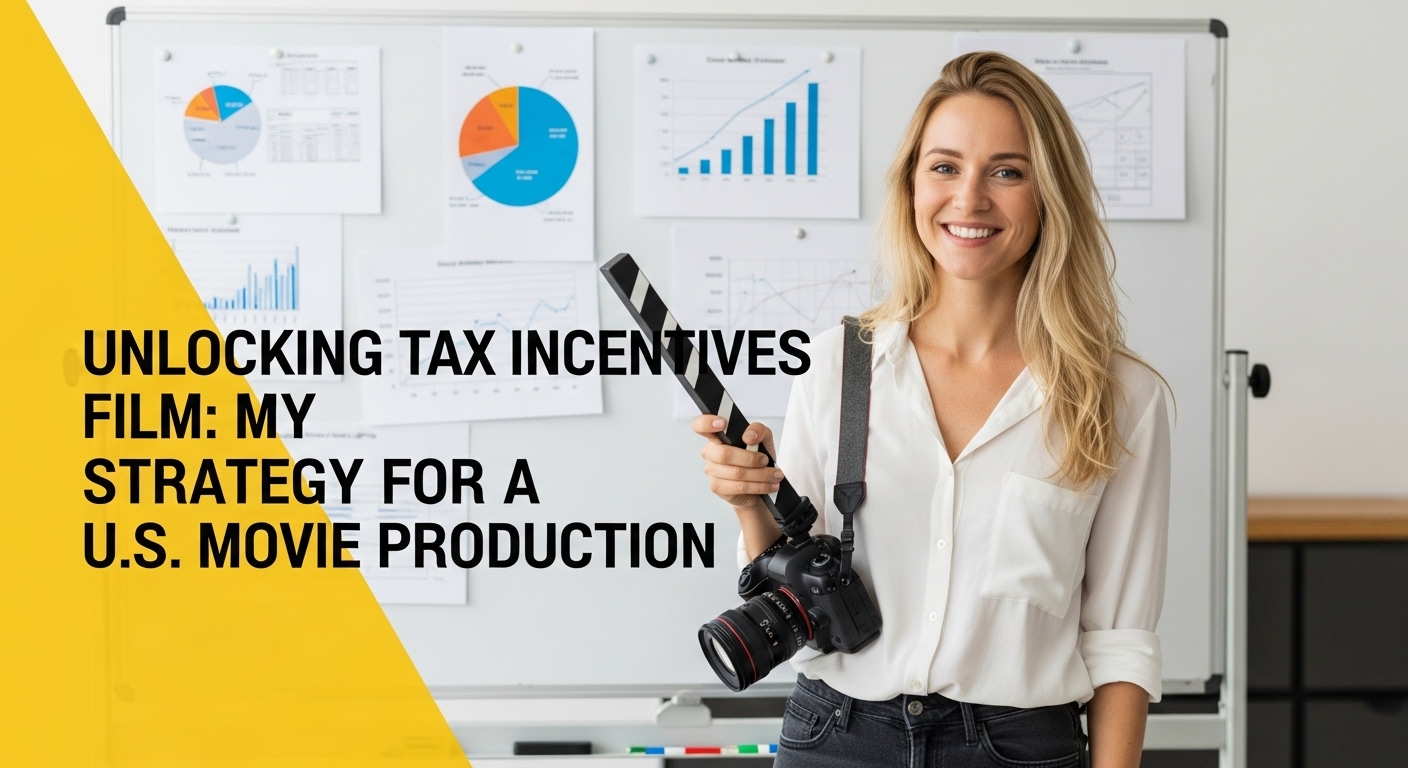Securing film insurance for a TV show can seem daunting, but with the right knowledge and guidance, it can be a smooth and hassle-free process. Here’s a comprehensive guide to navigating the world of TV show insurance:
Essential Covers:
Before diving into the specifics, let’s explore the essential insurance types you’ll need for your TV show:
- Production Errors & Omissions (E&O): This shields you from financial losses arising from errors, defects, or omissions in the script, editing, or final product.
- General Liability: Protects against claims of bodily injury or property damage to third parties during production.
- Cast & Crew: Provides medical and disability coverage for cast and crew members in case of injuries sustained on set.
- Equipment: Covers your valuable cameras, lights, and other equipment against damage, theft, or loss.
- Completed Operations: Offers protection against claims stemming from defects in the final product after it airs.
Additional Considerations:
Beyond the basics, tailor your coverage to your specific needs. Consider if you need:
- Workers’ Compensation: Mandatory in most regions, it covers on-the-job injuries to cast and crew.
- Cyber Liability: Protects against data breaches and online risks.
- Location Insurance: Covers damage to filming locations.
- Property Insurance: For sets, props, and costumes.
Finding the Right Broker:
Film insurance requires specialized expertise. Partner with a reputable entertainment insurance broker who understands the TV production landscape. Seek recommendations from colleagues, production partners, or industry associations. Ask about their experience with TV shows, risk assessment services, and claims handling capabilities.
Obtaining Insurance:
Once you’ve chosen a broker, prepare a detailed production budget and schedule outlining your shooting locations, cast and crew size, equipment rentals, and any special stunts or effects. The broker will use this information to assess your risks and get quotes from various insurance companies. Compare coverage options, deductibles, and premiums before making a decision.
Tips for Smooth Sailing:
- Start early: Don’t wait until the last minute to secure insurance. Give yourself ample time to compare quotes and finalize coverage.
- Communicate clearly: Be transparent with your broker about your production’s details and potential risks.
- Read the fine print: Thoroughly understand the terms and conditions of your policy before signing.
- Maintain records: Keep detailed documentation of your production, equipment, and cast and crew contracts.
Alternative Options:
For short-term projects or low-budget productions, consider short-term film production insurance platforms like Thimble or Filmpack. These offer on-demand coverage with simpler application processes and potentially lower premiums. However, they may not provide the same level of comprehensive coverage as traditional policies.
Remember, film insurance is not just a legal requirement, it’s an investment that protects your production from unforeseen risks and gives you peace of mind to focus on creating a stellar TV show. By following these steps and choosing the right insurance partner, you can ensure a smooth and successful production journey.
Beyond this guide:
- Film & Television Production Risk Managers Association (FTRPMA): A valuable resource for information and industry best practices.
- Wrapbook: Provides online production management tools and offers short-term production insurance.
- Entertainment Partners: A leading entertainment insurance brokerage firm with extensive experience in TV production.
Demystifying TV Show Film Insurance: A Producer’s Guide to Securing Peace of Mind on Set.
Hey there, fellow showrunners and production maestros! Let’s talk about a topic that sends shivers down the spines of even the most seasoned professionals: film insurance for TV shows. In my 20 years navigating the wild world of television production, I’ve seen budgets implode, schedules melt down, and cast members sporting hilarious (and expensive) accidental mustaches—all because of unforeseen production snafus. Trust me, having the right insurance is like wearing a magical helmet in this high-stakes game.
So, buckle up, and let’s dive into the nitty-gritty of securing film insurance for your next masterpiece.
II. Understanding TV Show Film Insurance: Your Safety Net, Explained.
Forget generic “one-size-fits-all” policies. TV show insurance is a complex tapestry woven from various coverages, each shielding you from specific production perils. Let’s unravel the essential threads:
Essential Coverages: Your Show’s Safety Blanket.
1. General Liability: Imagine a rogue pyrotechnic mishap scorching a priceless antique chair on set. Cue panicking production assistant. General Liability (GL) is your knight in shining armor, covering property damage, bodily injury to cast/crew/public, and those awkward “oops, sorry-we-blew-up-your-heirloom” situations.
2. Workers’ Compensation: Accidents happen, even with the most meticulous safety protocols. Workers’ Compensation ensures if your valiant stunt performer takes a tumble, their medical bills are covered, and they can bounce back without financial worries.
3. Errors & Omissions (E&O): Picture this: you accidentally air a shot with a copyrighted logo in the background. E&O protects you from claims arising from negligence, copyright infringements, or even those pesky script leaks that send Twitter into a frenzy.
4. Cast & Crew: Let’s face it, our talented actors and crew are the beating heart of the show. This coverage provides medical coverage for cast and crew, along with death and disability benefits in case of the unthinkable.
Additional Coverages: Fortifying Your Production Fortress.
Think of these as optional shields you can strategically deploy depending on your show’s unique needs:
- Equipment: Say goodbye to panic attacks over a stolen camera or a flooded editing suite. This covers damage, loss, or theft of your precious production gear.
- Property: Sets, props, costumes—they all paint the vibrant world of your story. This coverage protects them from accidental destruction or pilferage by overzealous fans.
- Completion Guarantee: Imagine the horror of filming halfway through a season, only to have the funding evaporate! This insurance acts as a financial parachute, ensuring your show gets completed even if production is interrupted due to unforeseen circumstances.
- Cyber Liability: In today’s digital age, data breaches are a real threat. This coverage shields you from the financial fallout of cyberattacks and data leaks.
We’ve just scratched the surface of film insurance for TV shows. Stay tuned for Part II, where we’ll delve into navigating the insurance labyrinth, from finding the right broker to negotiating the best deal like a seasoned pro. Remember, having the right coverage isn’t just about checking a box; it’s about securing the peace of mind you need to focus on what matters most—bringing your vision to life with brilliance and, of course, a touch of controlled chaos.
III. Navigating the Insurance Labyrinth: Your Essential Guide.
Welcome back, fellow production warriors! Now that you’re equipped with a solid understanding of TV show film insurance coverages, let’s tackle the practicalities of securing that sought-after protection. Think of this as your trusty map through the insurance maze, complete with insider tips and hard-won insights from my two decades in the trenches.
Finding the Right Broker: Your Insurance Whisperer.
Like casting the perfect lead for your show, finding the right insurance broker is a crucial decision. You need someone who not only speaks the language of insurance but also understands the nuances of TV production. Here’s what to look for:
- Industry Expertise: Seek a broker who has a proven track record in handling TV show insurance. They should be familiar with the unique risks and exposures associated with our industry.
- Network and Reputation: A well-connected broker can tap into a network of insurers and negotiate competitive rates. Ask for references and check their industry reputation.
- Personal Touch: Insurance shouldn’t be a one-size-fits-all affair. A great broker will take the time to understand your show’s specific needs, budget, and risk profile. They’ll become your trusted advisor, not just a salesperson.
Preparing for Insurance: Get Your Documents in Order.
Before you start shopping around for quotes, it’s essential to have your ducks in a row. Here’s a checklist of documents and information your broker will likely need:
- Production Details: A comprehensive overview of your show, including the title, genre, format, length, shooting schedule, locations, and cast/crew size.
- Budget Breakdown: A detailed breakdown of your production budget, highlighting key expenses and potential risks.
- Risk Assessment: Identify potential risks and hazards associated with your production, such as stunts, special effects, animal wrangling, or filming in remote locations.
- Safety Protocols: Outline your safety plan and risk mitigation measures to demonstrate a proactive approach to risk management.
IV. Case Studies and Real-World Examples: Learning from the Battlefield.
Theory is great, but nothing beats learning from the experiences of others who’ve been there, done that, and maybe even had their camera lenses devoured by a rogue llama (true story). Here’s where we dive into case studies and real-world examples to illustrate how insurance plays out in the wild world of TV production:
The Low-Budget Renegade: Pulling Off a Miracle on a Shoestring.
- The Show: Imagine a gritty indie drama, shot on location in the back alleys of Brooklyn, with a cast of unknown actors and a crew fueled by passion and pizza.
- The Insurance Challenge: Securing coverage on a tight budget, while still protecting against potential risks like equipment theft or injuries on a rough set.
- The Solution: A broker specializing in independent productions finds a niche insurer willing to work with the limited budget. They focus on essential coverages like General Liability, Workers’ Compensation, and Cast & Crew, while educating the team on strict safety measures to minimize risks.
The Stunt-Heavy Blockbuster: Taming Explosions and Flying Superheroes.
- The Show: Think heart-stopping action sequences, elaborate stunts, and enough pyrotechnics to rival a Fourth of July celebration.
- The Insurance Challenge: Managing the heightened risks associated with stunts and special effects, ensuring the safety of cast and crew while protecting the production from costly delays or lawsuits.
- The Solution: A team of experienced risk assessors and stunt coordinators work closely with the broker to create a comprehensive insurance package, including high-limit General Liability, Workers’ Compensation, and specialized coverage for stunts and special effects. Rigorous safety protocols and rehearsals are paramount.
The International Co-Production: Navigating Cultural and Legal Mazes.
- The Show: A sweeping historical drama filmed across multiple countries, involving diverse cast and crew members, and facing a labyrinth of international regulations.
- The Insurance Challenge: Ensuring compliance with different insurance laws in each country, coordinating coverage for cast and crew traveling abroad, and managing potential risks like political unrest or natural disasters.
- The Solution: A broker with expertise in international productions partners with local insurance providers in each country, ensuring seamless coverage and compliance. Clear communication and risk assessments are crucial to navigate cultural differences and potential language barriers.
Stay tuned for Part V, where we’ll uncover tips and best practices to ensure you’re a master of insurance—and not the other way around!
V. Tips and Best Practices: Mastering the Insurance Game.
Here we are, fellow production aficionados, at the heart of practical wisdom! It’s time to arm you with battle-tested tips and best practices to ensure you navigate the insurance landscape like a seasoned pro. After all, the goal isn’t just to get insured—it’s to do it right, maximizing protection while minimizing headaches.
Involve Key Stakeholders Early:
Don’t wait until the last minute to bring up insurance. Loop in your key players—producers, showrunners, line producers, and legal counsel—from the get-go. This ensures everyone is on the same page about coverage needs and potential risks.
Communicate Openly and Transparently:
Honesty is always the best policy, especially with your insurance broker. Be upfront about any known risks or concerns, even if they might impact premiums. It’s better to address issues proactively than face surprises down the line.
Safety First, Insurance Second:
Remember, insurance is a backup plan, not a substitute for safe practices. Prioritize safety measures on set, from rigorous training to regular equipment checks. A proactive approach to risk management can reduce accidents and potentially lower insurance costs.
VI. Wrapping It Up: Securing Your Peace of Mind.
Well, folks, we’ve reached the end of our insurance odyssey! I hope this guide has shed some light on the often-mystifying world of TV show film insurance. Remember, securing the right coverage isn’t just a box-checking exercise—it’s an investment in your production’s health, safety, and ultimate success.
Here’s a recap of the key takeaways to keep in mind:
- Understand Your Coverage Needs: Assess the unique risks of your production and choose coverages that align with your specific needs.
- Partner with a Reputable Broker: Find a broker who specializes in entertainment insurance and understands the nuances of TV production.
- Prepare Thoroughly: Have your production details, budget, risk assessment, and safety protocols ready to streamline the process.
- Communicate Openly: Be transparent with your broker about potential risks and concerns to ensure accurate coverage.
- Prioritize Safety: Implement robust safety measures on set to reduce accidents and potentially lower insurance costs.
- Review and Update Coverage: As your production progresses, review your insurance policies regularly to ensure they meet evolving needs.
- Maintain Clear Documentation: Keep meticulous records of all insurance paperwork, certificates, and claims for future reference.
Never Underestimate the Power of Planning and Prevention: Investing in risk management strategies upfront can save you time, money, and endless headaches in the long run.
Seek Guidance When Needed: Don’t hesitate to reach out to industry organizations, legal counsel, or experienced insurance professionals for expert advice.
Embrace Peace of Mind: With the right insurance in place, you can focus on what matters most—bringing your creative vision to life and captivating audiences with your storytelling magic.

I am a highly experienced film and media person who has a great deal to offer to like-minded individuals. Currently working on several exciting projects, I am a film and media practitioner for over a decade. I have achieved a great deal of success in my professional career.





